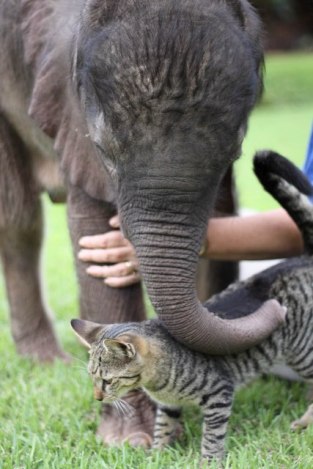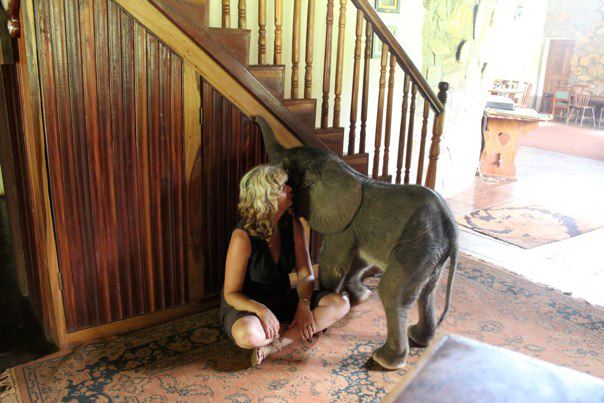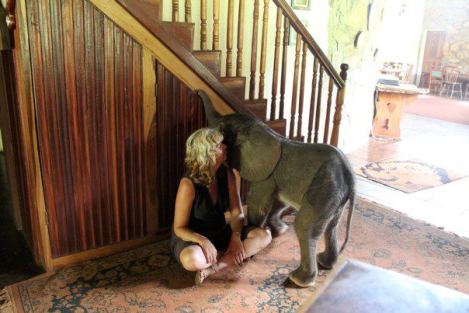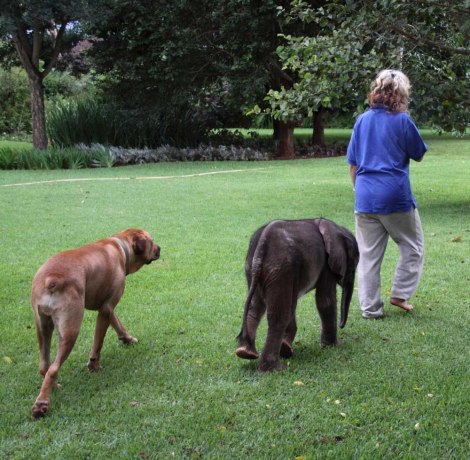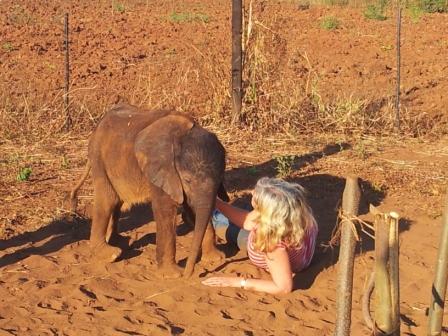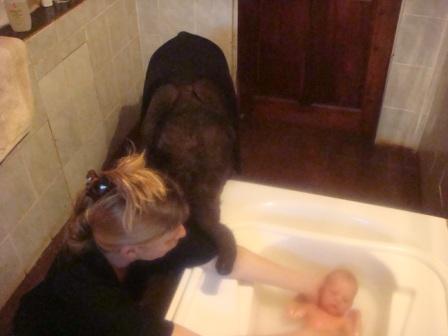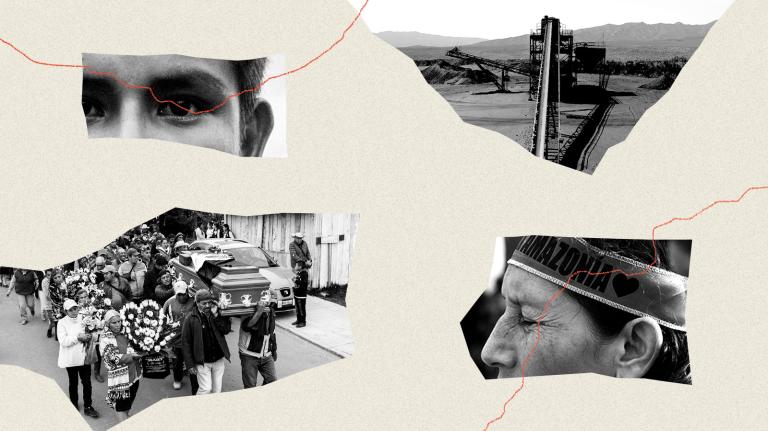It’s never easy raising a 7-month-old, but Jenny Webb has special challenges: Her baby weighs 220 pounds. But he still needs to be fed his bottle every two hours all night.
The baby elephant, named Moses because he was discovered in reeds by a riverbank, has lived with Webb since he was just a few weeks old. Rangers at the Vwazi Wildlife Reserve in Malawi, where Moses comes from, tried to find his family but concluded that Moses’ elephant mom must have been killed by poachers. So now he has Webb, his human mom.
Webb is the founder of Jumbo Foundation, an orphanage for large animals, so she wasn’t fazed by the idea of caring for an infant who’s larger than she is. She sleeps with Moses on a mattress on the dining room floor, gets up to feed him at night, puts sunscreen on him to protect his sensitive skin (in the wild, elephant calves find shade by standing underneath their mothers, but clearly that’s not going to work here), and shows him how to do elephant things like take dust baths.
Webb also helps care for a human baby, her granddaughter Catherine, but Moses — though he sulked a little when Catherine arrived, like a toddler with a new sibling — loves the youngest member of his herd and even supervises her baths.
He also loves playing with a ball, playing/snuggling with dogs, donkeys, and cats (both big and domestic), and pulling on Webb’s nose with the apparent hope of stretching it into a trunk.
Webb maintains a blog for Moses, where you can keep up with his activities. For an orphan found abandoned and near death, he’s doing exceptionally well — he did have to have hernia surgery shortly after Webb brought him home, because his umbilical cord was damaged at birth, but he’s slowly putting weight back on after losing a lot due to stress. In a few weeks he’ll even start eating solid food instead of being fed specialty formula from a bottle (more than six gallons a day!). In a few years, he’ll start living outside, partly as a transition to living in the wild, and partly because he won’t fit in the door. And when he’s 5, Webb will reintroduce him to a wild herd, maybe in the park where he was discovered. Until then, his human (and dog and kitty) herd is with him 24 hours a day.
